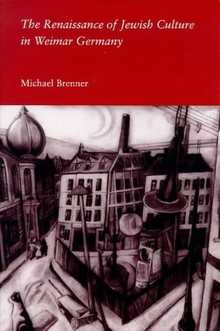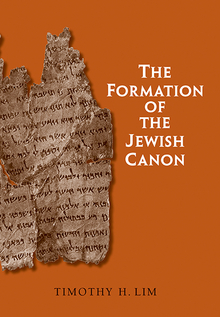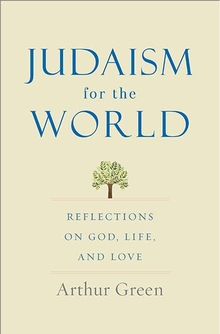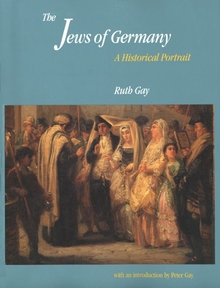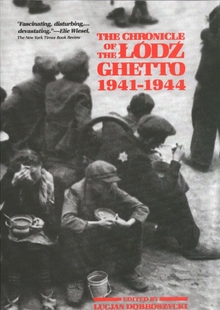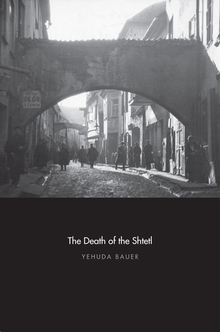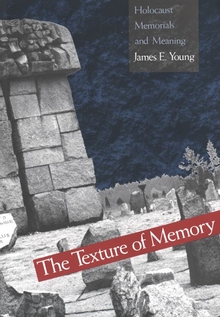The Renaissance of Jewish Culture in Weimar Germany
WARNING
You are viewing an older version of the Yalebooks website. Please visit out new website with more updated information and a better user experience: https://www.yalebooks.com
Michael Brenner
The Weimar Jews chose neither a radical break with the past nor a return to the past but instead dressed Jewish traditions in the garb of modern forms of cultural expression. Brenner describes, for example, how modern translations made classic Jewish texts accessible, Jewish museums displayed ceremonial artifacts in a secular framework, musical arrangements transformed synagogue liturgy for concert audiences, and popular novels recalled aspects of the Jewish past. Brenner's work, while bringing this significant historical period to life, illuminates contemporary Jewish issues. The preservation and even enhancement of Jewish distinctiveness, combined with the seemingly successful participation of Jews in a secular, non-Jewish society, offer fresh insight into modern questions of Jewish existence, identity, and integration into other cultures.
"Rather than a community on the eve of destruction, Brenner's Weimar Jews represent one of the more creative moments in diaspora Jewish history. This book will attract a wide audience of readers in German and Jewish history."—David Biale, Graduate Theological Union
"Until this remarkable volume we had little appreciation of the vibrant and multifaceted, specifically Jewish culture created by the Jews of Weimar Germany. Michael Brenner, a richly talented and sensitive young historian, here shows us that Weimar Jewry was far more focused on its Jewish heritage than we had realized. His thoroughly researched, cogently argued and eminently readable work will impress historians and general readers alike."—Michael A. Meyer, Hebrew Union College
"In his study of specific Jewish institutions and activities in Weimar, Michael Brenner deepens and properly complicates our understanding of German Jewry in its penultimate phase. He reconstructs the efforts to spread Jewish self-knowledge in a secular context. A major scholarly contribution, imaginatively researched and lucidly presented."—Fritz Stern, Columbia University
"In this well-written, well-researched, indeed path-breaking work, Michael Brenner has stood the conventional view of Weimar Jewry on its head so convincingly that it will be impossible ever to return to a belief in assimilation and a Jewish population 'beyond Judaism.'. . . Brenner has put a path-breaking new model on the table, and scholars will toil for years to work out the details. It would be difficult to give a work higher praise."—Richard Bodek, German Studies Review
"A fascinating and beautifully written book."—Julia Neuberger, Jewish Chronicle
"A lucid, dynamic portrait of a golden age of German-Jewish culture"—Choice
"A fascinating study of Jewish culture in Weimar Germany."—Avi Kempinski, Jewish Quarterly
"Michael Brenner has written a brilliant, original book about the Jews in the Weimar Republic. . . . As one closes Michael Brenner's book, one cannot escape the feeling that, although he has recorded an amazing 'renaissance,' he has written an ultimately tragic chronicle of the Jewishness of the last German Jews."—Ruth Gay, American Scholar
"This volume will be valued chiefly as a highly readable survey of specifically Jewish cultural trends in Weimar Germany that recast the Jewish heritage in a secular context."—Donald L. Niewyk, American Historical Review
"Michael Brenner's book is an important and exciting contribution to the literature on German Jewry. This is cultural history distinguished by breadth of research and sober and subtle thought."—Jacques Kornberg, Canadian Journal of History
"Rather than assimilate into mainstream German society, says Brenner, many Jews after World War I became more aware of their Jewishness and dressed Jewish traditions in modern garb to create new forms in literature, music, fine arts, education, and scholarship. He documents how classics were translated, ceremonial artifacts displayed, synagogue liturgy arranged for concert audiences, and the Jewish past recalled in novels."—Reference & Research Book News
"This book will be especially helpful for those who teach courses on the Holocaust who wish to gain a sense of the vitality of German Jewish life before the rise of Hitler."—Michael Berkowitz, Ohio State University (Religious Studies Review)
"Quite apart from its intrinsic value as a study of a special period in Jewish history, [The Renaissance of Jewish Culture in Weimar Germany] has a distinct relevance to the present-day Renaissance of Jewish life which renders the work interesting, enlightening and occasionally disturbing well beyond its immediate subject."—Judith Buckrich, The Australian Jewish News
"A powerful, detailed study that revises the widely prevalent view of German Jewry as self-deceived, and recovers the self-assertion and compiles forms of modern Jewish culture that sought new definition between the wars in Berlin, Frankfurt, Bavaria, and elsewhere."—David Suchoff, Modern Jewish Studies
"An elegant and comprehensive study in Judaism's encounter with modern culture in Germany, undertaken by someone uniquely qualified for the task, and a testimony that German Judaism, in its final decades, was very much alive."—SHOFAR
"This intelligent study avoids the conceptual hazards that have attached themselves to the term 'Weimar Culture.' Michael Brenner wastes no time pondering the degree of that culture's Jewishness or ferreting out the Jewish element in the artistry of Kurt Weil or Max Liebermann. His subject is Jewish culture, and his definition of the term is precise. . . . Brenner shows convincingly that what happened during the Weimar era was no mere return to Jewish traditions or even a simple rediscovery of them. By the 1920s the great majority of German Jews had been wholly secularized and had next to no knowledge of Judaism and Jewish History, custom, or culture. Driven to reconsider their identity and starting from a position of relative ignorance, they perforce created something entirely new, a Jewish culture suitable for modern, well-educated, largely bourgeois individuals unwilling to give up their Germanness but ready to make their Jewishness a more meaningful part of their lives."—Richard S. Levy, Journal of Modern History
Publication Date: September 10, 1998
12 b/w illus.

